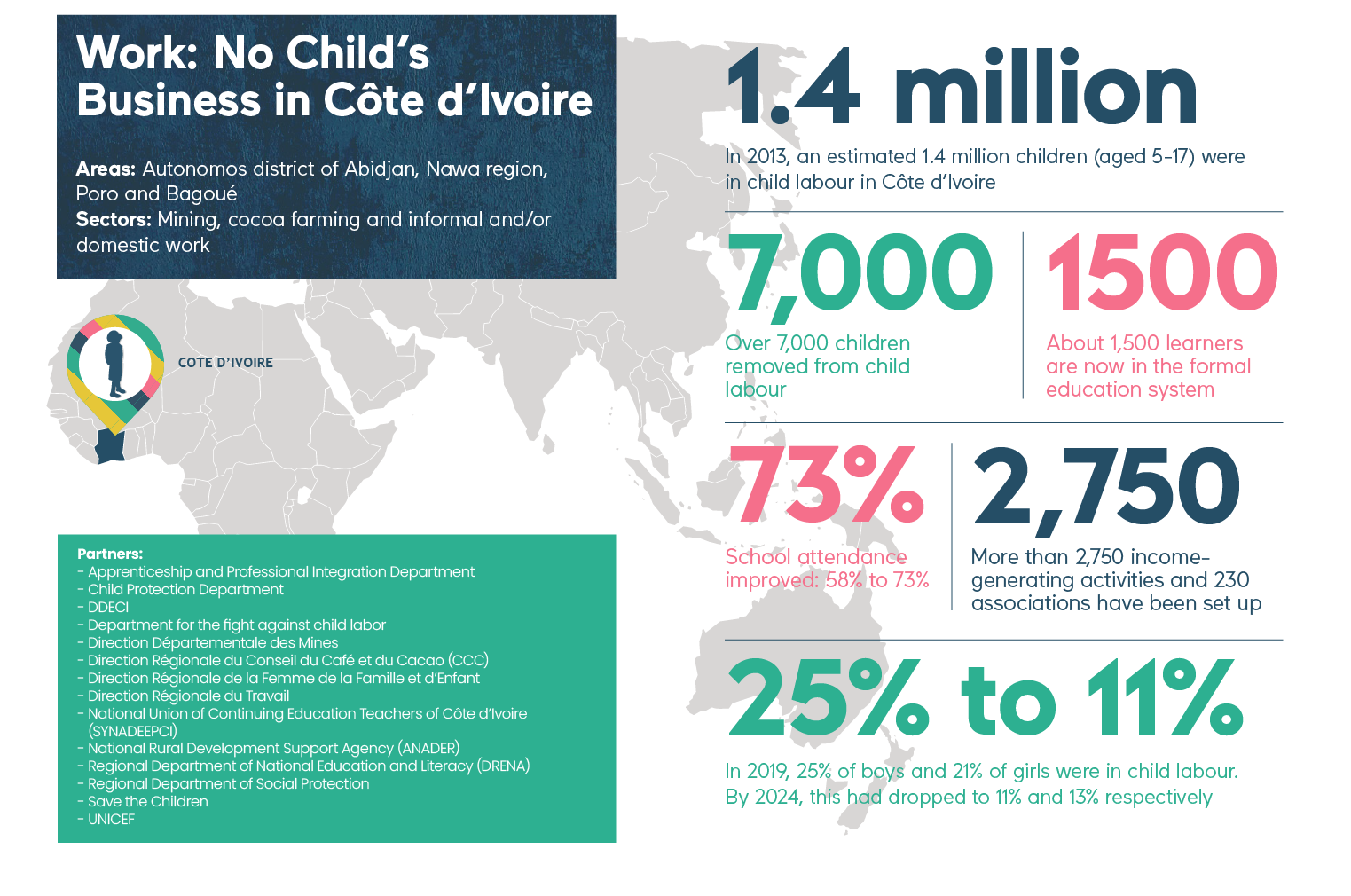
Child labour in Côte d’Ivoire
In 2013, an estimated 1.4 million children (aged 5-17) were in child labour in Côte d’Ivoire. 49% of them were in the agricultural sector. Most of these working children come from farming families, as child labour is most prevalent in rural areas of the country. These children live and work on the land with their families.
Côte d’Ivoire alone is the world’s leading cocoa producer, accounting for over 40% of global production. During the 2018/2019 cocoa growing season, 790,000 children were involved in child labour in cocoa producing areas in Côte d’Ivoire. This represents 38% of children living in farming households.
How we measure our results
- Key Performance Indicator studies (3x) at baseline, mid-term and endline. In total, these included household surveys with over 4400 respondents and 261 interviews in Côte d’Ivoire.
- SenseMaker studies (3x) during the baseline, mid-term and endline to measure norm change in communities including 121 adults and 271 children in Côte d’Ivoire.
- Gender analysis to develop gender-sensitive and transformative interventions
- Annual outcome harvesting to reflect on our interventions and contributions to change
- External mid-term review and final evaluation
Impact summary
The WNCB programme was implemented in high incidence areas covering a total of 291,913 community members, reaching approximately 34,000 community members and 5,225 children per year. It provided child protection services and child rights messages, and improved access to education.
The programme successfully reduced the number of children engaged in child labour. At baseline, 25% of boys and 21% of girls were involved. By 2024, this had dropped to 11% and 13% respectively. Over 7000 children were removed from child labour.
Stories of change
Collaboration with communities and government
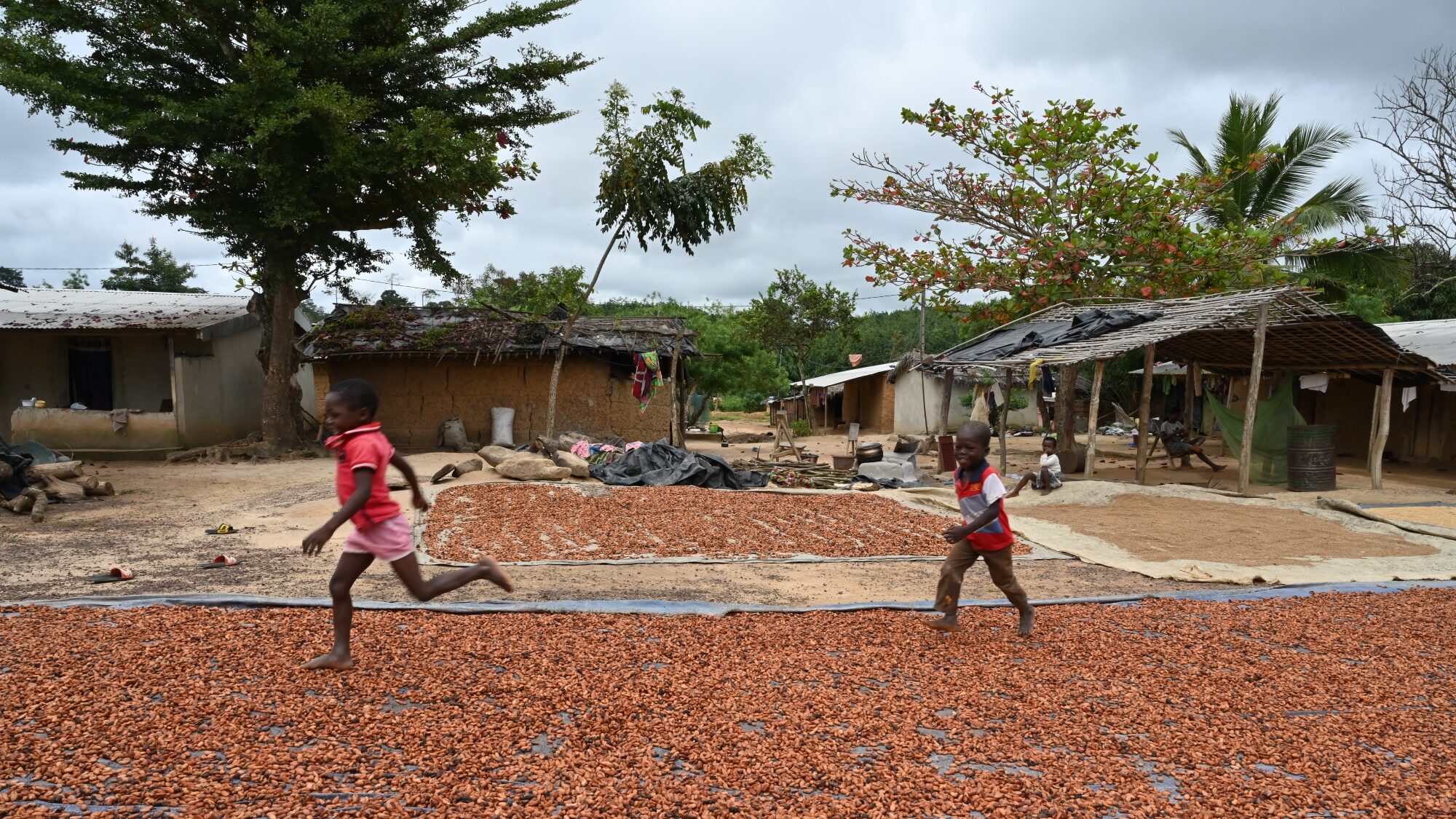
Côte d’Ivoire is the world’s leading cocoa producer and exporter, accounting for almost 40% of global cocoa production. The country’s economy is closely linked to cocoa cultivation and export, contributing around 15% of GDP and 40% of exports. Cocoa provides employment and income for millions of Ivorians. Soubré in west Côte d’Ivoire is one of the country’s largest cocoa-growing areas, as well as coffee, rubber and palm oil producer.
The region’s climate and fertile soil make it ideal for growing cocoa trees. Most cocoa production is by smallholder farmers in villages far from towns and villages with dirt roads through forest. For these farmers, cocoa farming is vital. A key challenge is ensuring a decent income that prevents child labor. The cocoa supply chain is complex. This, coupled with economic challenges, inadequate legislation and frameworks, contributes to harsh living conditions in the region.
Children in Soubré face a harsh reality where parents’ quest for a living wage often comes at the expense of their rights. Despite legislation requiring school attendance until the age of 15, many in the Nawa don’t go to school. Their parents’ limited resources, poor access to schools, social norms or need for extra income means children often work with their parents on the farms.
This is a story about eradicating child labor by improving access to and quality of education, strengthening social structures, introducing better farming techniques and more.
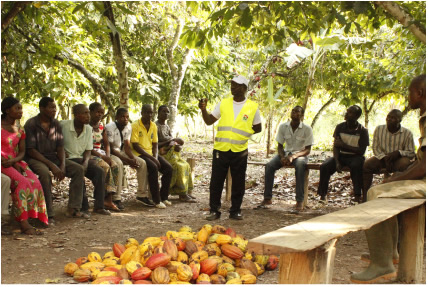
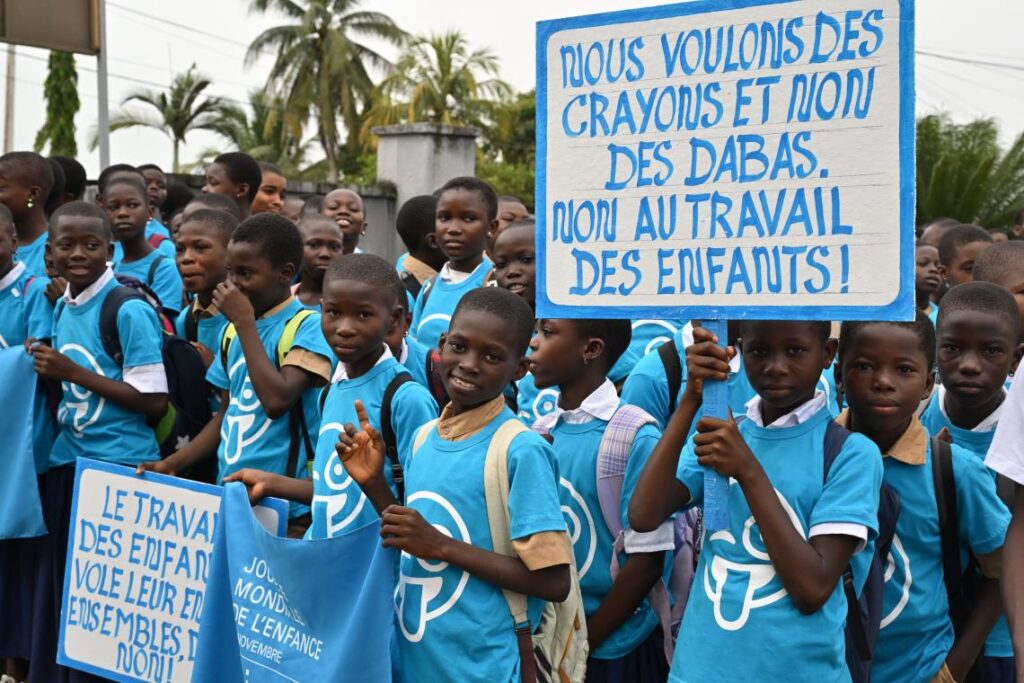
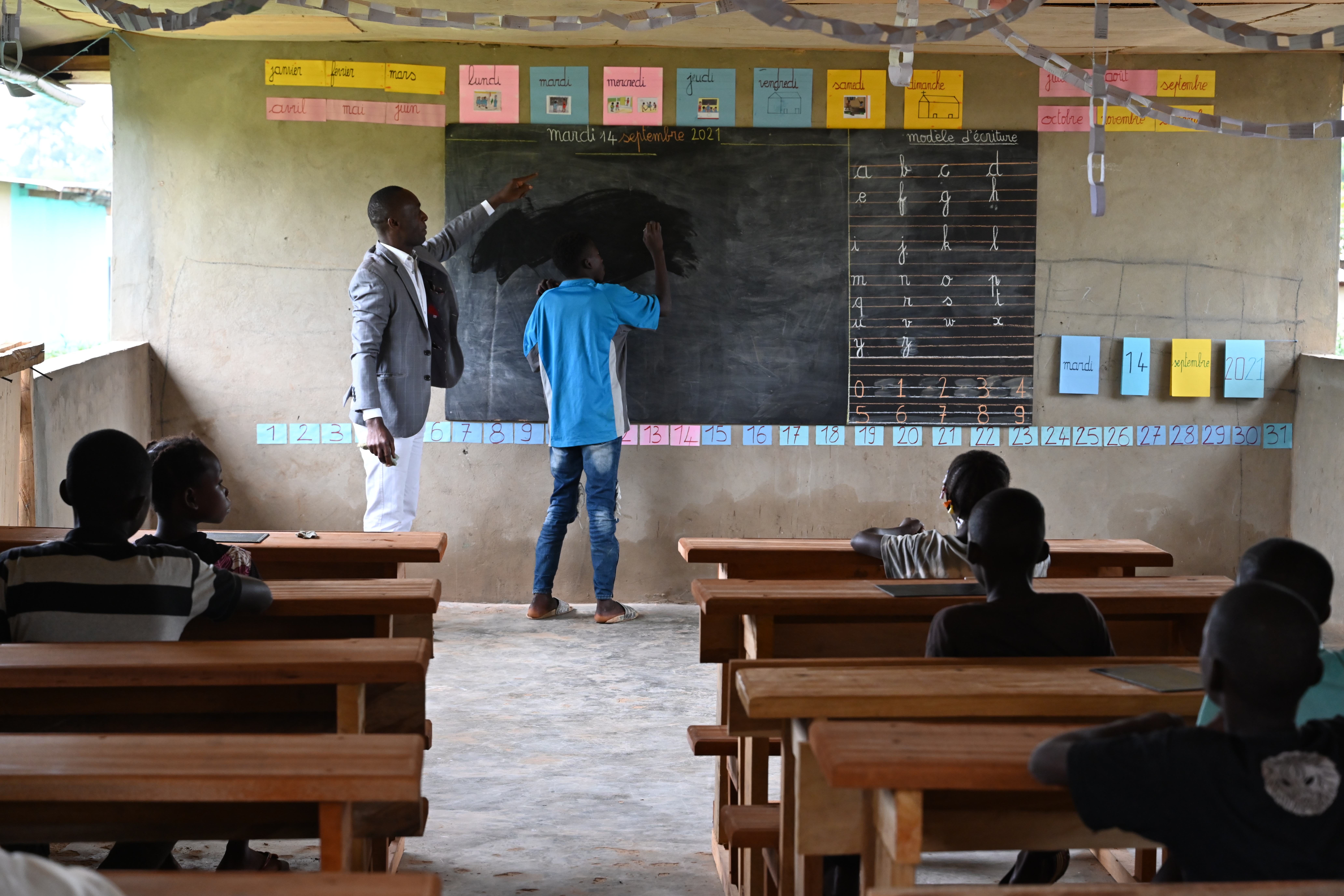
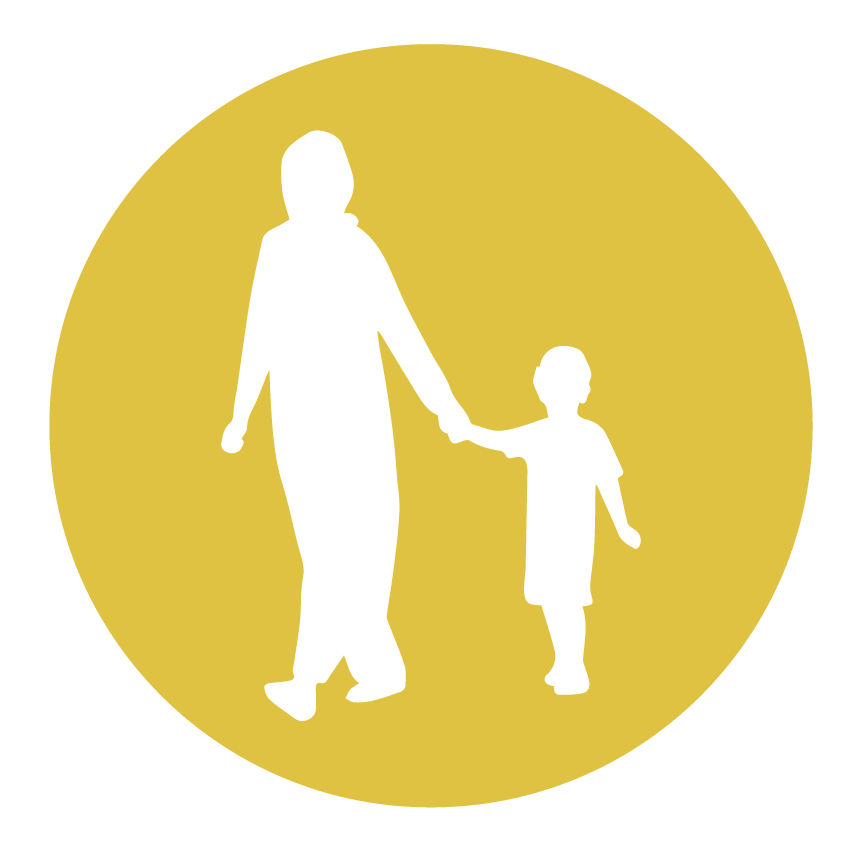
Communities
WNCB partners helped 2,000 children from vulnerable households obtain legal identity documents.
Eighty-seven local cooperative societies are now committed to taking children’s rights into account in their policies and procedures manuals. This demonstrates improved child protection systems.
To increase access to services such as education and healthcare, WNCB partners helped 2,000 children from the most vulnerable households access legal identity documents, such as a birth certificate.

Schools
The programme has boosted school attendance in the programme areas, from 58% to 73%.
The programme has had a positive impact on the school attendance of children in the programme areas, with attendance rising from 58% at the start of the programme to 73% at the end.
With the support of our partners, around 1500 learners were integrated into the formal education system through the creation of 3 reading rooms and 100 bridging classes.
In the communities, 1,214 primary, pre-primary and secondary school teachers received training on child labour and children’s rights, leading to a strengthening of child protection systems in the programme areas. Upstream, the Direction de l’Apprentissage et de l’Insertion Professionnelle and the Chambre Nationale des Métiers de Côte d’Ivoire received support to develop curricula and didactic tools for apprenticeships.
Our partners’ efforts to promote school attendance to keep children out of child labour and in school have resulted in both children and adults reporting an increased value for education over time. Adults in particular (91 per cent) gave education an overwhelming priority at the end of the programme.

Economic Strengthening
More than 2,750 income-generating activities and 230 village savings and credit associations have been established.
During the programme period, 750 families benefited from cash transfers based on approaches developed by the Productive Safety Net Programme. Furthermore, more than 2,750 individual income-generating activities and 230 village savings and credit associations were established in the agricultural, agro-pastoral, small business and service sectors.
The social situation of over 72% of AVEC members, especially women, has improved through their participation in managing household expenditure, controlling income, accessing material goods, consolidating their food security and strengthening cohesion within the various households and communities themselves.
A total of 162 young people participated in quality apprenticeships, as required by national legislation, to help improve their chances of finding decent work.

Private Sector Collaboration
To educate farmers about children’s rights, WNCB has trained around 1,500 farmers.
To change norms and inform farmers in the programme areas about children’s rights, the WNCB partner National Agency for Rural Development Support (ANADER) held training sessions with around 1,500 farmers in groups and cooperatives. WNCB partners have also contributed to the establishment of platforms for the protection of children in the mining sector in the regions of Nawa, Poro and Bagoué.
At sector level, the Conseil du Café-Cacao, as a legacy of the programme, has committed to ensuring that 87 cooperatives continue to promote and respect children’s rights. At the central level, advocacy efforts are underway to integrate child rights issues into the Mining Code, which is currently being revised.

Governments
Our partners’ efforts led to the adoption of a decree on foster care.
Our partners’ advocacy efforts led to the adoption of a decree on foster care and child placement: ‘Arrêté N° 039 /MENA/CAB du 06 novembre 2023 portant création des classes passerelles et déterminant leurs conditions d’ouverture et modalités de fonctionnement’.


